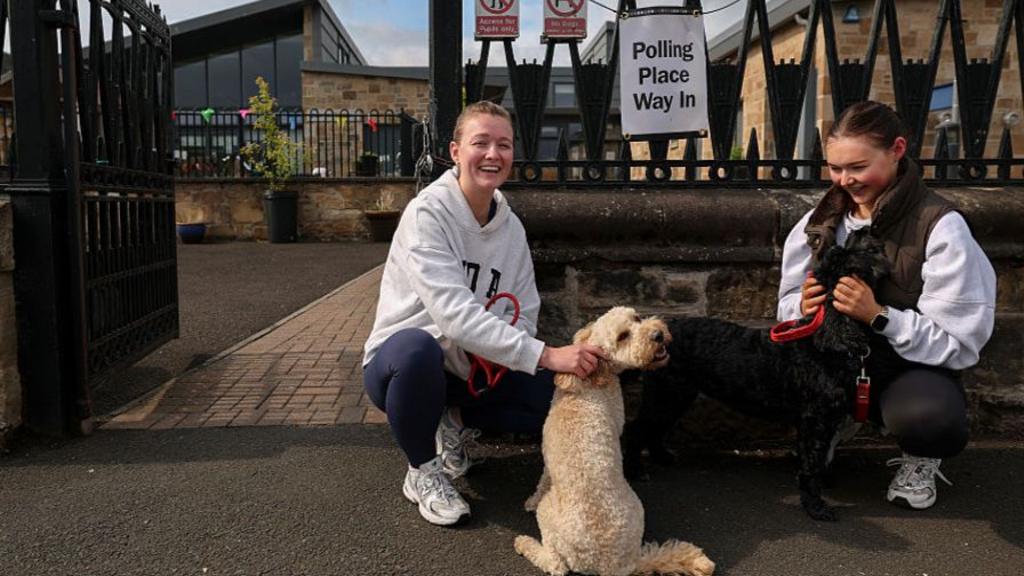The government is considering plans to lower the voting age to 16, potentially allowing sixteen and 17-year-olds to participate in the next general election.
This proposal is part of a broader Elections Bill, which includes a range of measures.
Additional changes under consideration involve expanding acceptable forms of voter identification to include UK-issued bank cards, exploring automatic voter registration, and strengthening regulations surrounding political donations to safeguard against potential foreign interference.
Currently, the minimum voting age is 16 for local council elections in Scotland and Wales, as well as elections for the Senedd and Scottish Parliament.
However, for elections to the UK Parliament, local elections in England, and all elections in Northern Ireland, the voting age remains at 18.
Reducing the voting age to 16 across the UK would represent the most significant alteration to the electorate since the voting age was lowered from 21 to 18 in 1969.
While the Labour party included a pledge to lower the voting age in its election manifesto, the proposal was absent from the King’s Speech last summer, which outlined the government’s priorities.
The government has now affirmed its intention to implement this change in time for 16 and 17-year-olds to vote in the next general election, which is scheduled to occur by 2029 but could be held earlier.
Deputy Prime Minister Angela Rayner stated to the BBC: “I was a mum at 16, you can go to work, you can pay your taxes and I think that people should have a vote at 16.”
In contrast, Conservative shadow minister Paul Holmes described the government’s position as “hopelessly confused.”
In the Commons, he questioned: “Why does this government think a 16-year-old can vote but not be allowed to buy a lottery ticket, an alcoholic drink, marry, or go to war, or even stand in the elections they’re voting in?”
Critics contend that this change could favor the Labour party, as younger demographics tend to lean towards left-wing political parties.
However, recent polls indicate that Labour’s youth vote may be vulnerable to erosion by parties such as the Greens, Liberal Democrats, and Reform UK.
In the UK, 16 and 17-year-olds constitute roughly 3% of the population aged 16 and over. Researchers suggest that the overall impact on vote share is likely to be minimal, particularly given that voter turnout is typically lower among younger age groups.
The government has dismissed claims that the proposed change is intended to benefit the Labour party.
“This isn’t about trying to rig votes for a particular party. This is about democracy and giving young people an opportunity to have a say,” Rayner asserted.
Other proposed measures include broadening the range of acceptable voter ID in Great Britain to include UK-issued bank cards.
While Labour opposed the introduction of voter ID requirements by the Conservatives in 2023, their election manifesto only pledged to “address inconsistencies” in the rules “that prevent legitimate voters from voting,” rather than abolishing the policy entirely.
According to the Electoral Commission, approximately 4% of individuals who did not vote in last year’s general election cited voter ID rules as the reason.
However, the Conservatives have suggested that allowing bank cards as voter ID could “undermine the security of the ballot box.”
The government also intends to develop an automated voter registration system in the coming years, incorporating safeguards to ensure individuals are aware of their registration status and have the option to opt-out.
Currently, UK residents are required to register to vote, either online or through a paper form.
The Electoral Commission estimates that nearly eight million people are either incorrectly registered or absent from the electoral register, with private renters and young people being disproportionately affected.
In a 2023 report, the Commission proposed that an automated system could involve organizations like the Passport Office providing Electoral Registration Officers with the names and addresses of eligible voters for registration purposes.
The government stated that its plans would enable direct addition of eligible voters to the electoral register through enhanced data sharing among government agencies.
Specific implementation details remain unconfirmed, as the government intends to pilot various methods.
The National Union of Students hailed the prospect of lowering the voting age as “a major victory for young people.”
The organization urged the government to facilitate voting for 16 and 17-year-olds by eliminating voter ID laws, implementing automatic voter registration, and promoting political literacy in schools and colleges.
Furthermore, the government indicated that changes to political donation rules would help combat foreign interference.
Current regulations permit political parties to accept donations only from individuals registered on a UK electoral register or from UK-registered companies that conduct business within the country.
Concerns have been raised that foreign nationals could circumvent these rules by donating through foreign companies registered in the UK.
This issue gained prominence late last year, following reports that US billionaire Elon Musk might donate to Reform UK via the British arm of his social media company, X.
The proposed measures would require political parties to assess companies from which they receive donations.
Companies would need to generate sufficient income in the UK or Ireland to qualify for donating.
The government stated that its proposals would close loopholes that allow recently registered companies without any trading history, owned by anyone, to donate to political parties.
The Liberal Democrats welcomed votes at 16 as “a no-brainer” but said “ministers must go much further to close the door to foreign oligarchs interfering in British politics”.
Sign up for our Politics Essential newsletter to keep up with the inner workings of Westminster and beyond.

